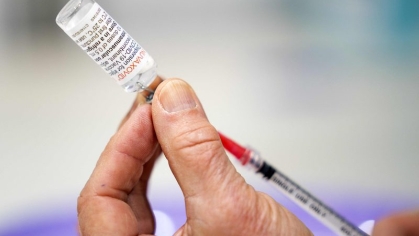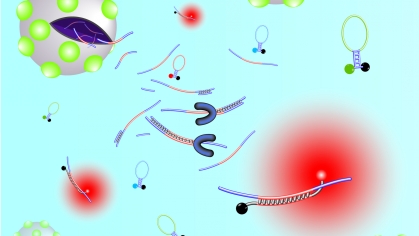Rutgers New Jersey Medical School Research Team Participates in First External Evaluation of Groundbreaking COVID-19 Test
Dr. David Alland, Director of the Rutgers New Jersey Medical School Public Health Research Institute, which is within the Rutgers Biomedical Health Sciences Institute for Infectious and Inflammatory Diseases (i3D), along with his colleagues Drs. Padmapriya Banada and Sukalyani Banik, have conducted the first evaluation of an innovative point-of-care test to detect COVID-19, the disease caused by the SARS CoV2 coronavirus that has affected citizens around the world. Cepheid has received Emergency Use Authorization clearance of this test by the Food and Drug Administration.
One of the biggest advantages of this test is that it is very fast and easy to perform without the need for a centralized laboratory. The hope is that this approach will enable decentralized testing for COVID-19, even in physicians’ offices, permitting physicians to make rapid decisions about quarantine, hospital isolation and treatments. Experiments that were undertaken at Rutgers showed that the test was able to detect even very small amounts of SARS CoV2.
According to Dr. Alland, “The test performed even better than our expectations, and we are encouraged about the potential for this test to help control the COVID-19 pandemic."
Designed to be rapid and easy to perform, the new test detects SARS CoV2, with high sensitivity in under 45 minutes, including all sample processing steps. The entire test is performed in a single cartridge that performs sample processing, target amplification, and SARS CoV2 detection automatically when the cartridge is inserted into Cepheid’s GeneXpert® System. Individual patient samples can be tested as soon as they arrive at a testing site because the GeneXpert System allows new test cartridges to be inserted immediately upon arrival without waiting for prior tests to be completed.
The Alland Laboratory and Cepheid have worked together for almost 20 years developing rapid molecular tests for infectious diseases. Together, they developed the first new test in more than 100 years to be approved by the World Health Organization to replace microscopic examination for the diagnosis of Tuberculosis (TB).



